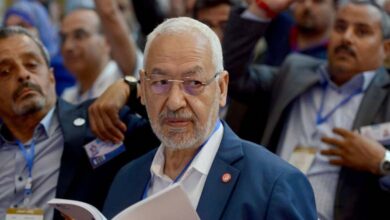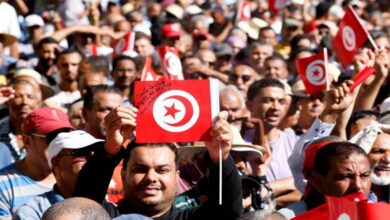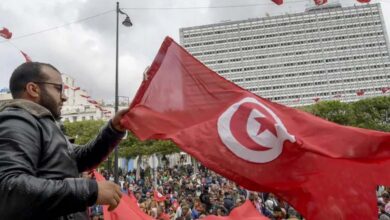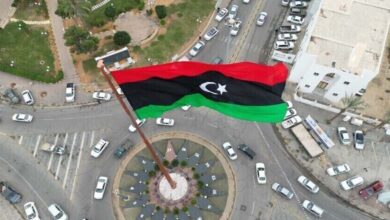The Muslim Brotherhood in Libya: Al-Ghariani Expands Influence over Education under the Guise of Religious Legitimacy
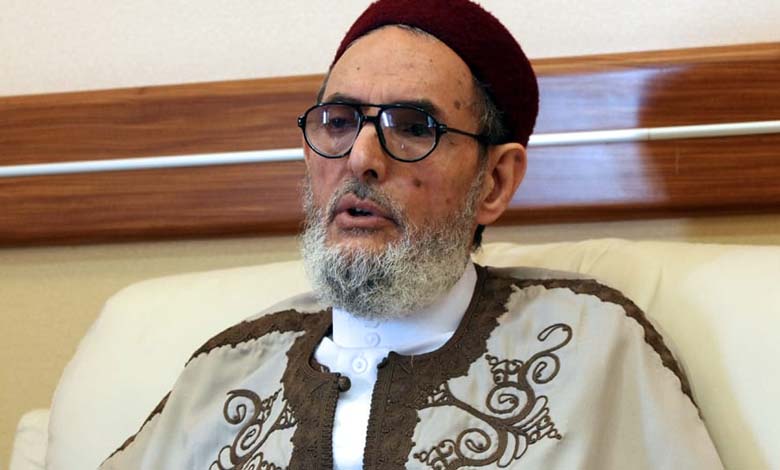
In a move that sparked widespread controversy, the ousted Libyan mufti, Sadiq Al-Ghariani, appeared in a public meeting with the Dean of the Faculty of Law at Al-Qeib University, promoting what appears to be a new project to infiltrate the educational sector.
-
“The Mufti of the Muslim Brotherhood”: Al-Ghariani leads an incitement campaign to prevent the end of the Dbeibeh government
-
Muslim Brotherhood in Libya Banking on Terror Mufti Sadik Al-Ghariani
Observers believe that this meeting was no coincidence, but part of a broader strategy by the Muslim Brotherhood to assert ideological dominance over the minds of the youth through educational and religious institutions—what some have described as the “turban of empowerment.”
The meeting between Al-Ghariani and the faculty dean aimed to explore cooperation with the Libyan Dar al-Ifta, headed by Al-Ghariani, despite his dismissal by parliamentary decision. The report notes that this is not merely a ceremonial encounter but should be understood within the context of a calculated re-entry by the Islamist movement into key state structures, especially those of education and religion, long used as tools to build a grassroots base and an ideological arm.
-
Al-Ghariani: Serving the Muslim Brotherhood in Exchange for Moral Support in Libya
-
Sadiq Al-Ghariani fatwas for serving terrorism.. Details
Al-Ghariani is one of the most prominent religious figures known for adopting a hardline discourse in recent years, having issued fatwas inciting violence and legitimizing the influence of extremist groups. Despite his official dismissal, he continues to enjoy support from influential political factions, particularly the Dbeibah government, which previously issued Decision No. 709 to establish religious schools affiliated with Dar al-Ifta—an initiative seen as reinforcing Islamist control over the educational system.
Researcher Hisham El-Bakli warned in comments of the risks involved in such meetings, stating that Brotherhood-linked groups use such platforms to regain influence and expand their cultural and social control. He emphasized that this is part of a long-term plan to “occupy minds”, primarily targeting youth and students through a directed religious discourse, disseminated via curricula and institutions crafted with deliberate intent.
-
Libyan Brotherhood and al-Ghariani: The war of terrorism protects the Mufti of blood
-
Accusations of Bias Target UN Mission in Libya
Despite these intense efforts, on-the-ground indicators suggest a decline in the movement’s popularity among the Libyan public. Brotherhood-affiliated lists, backed by Dar al-Ifta, failed to achieve meaningful results in municipal elections in both Tajoura and Sabratha—a clear sign that their project has been exposed to public scrutiny.
Even with Al-Ghariani’s fatwas calling for electoral participation and directing voters, public support remained limited, confirming that religious legitimacy alone is no longer enough to carry the Brotherhood’s agenda forward.
-
Dbeibah Turns to the Muslim Brotherhood, Haftar Warns of Decisive Moment… Libya on a Knife’s Edge
-
Libya: Dbeibeh Uses Religion and Wealth to Cling to Power as Protesters Intensify Pressure
-
Transfer of Armed Elements from Syria to Libya… A New Muslim Brotherhood Plan
-
How did the Muslim Brotherhood exploit the February events to seize power in Libya? A report answers
-
A Political Path and a Race for Influence… Libya at a New Crossroads
-
Al-Gharyani Incites Armed Resistance against the UN Mission in Libya
-
Warnings about Suspicious Moves to Recycle Extremist Organizations: What’s the Story?
-
Salvation Friday: Libyans Hold Their Breath Amid Fears of Militia Chaos



